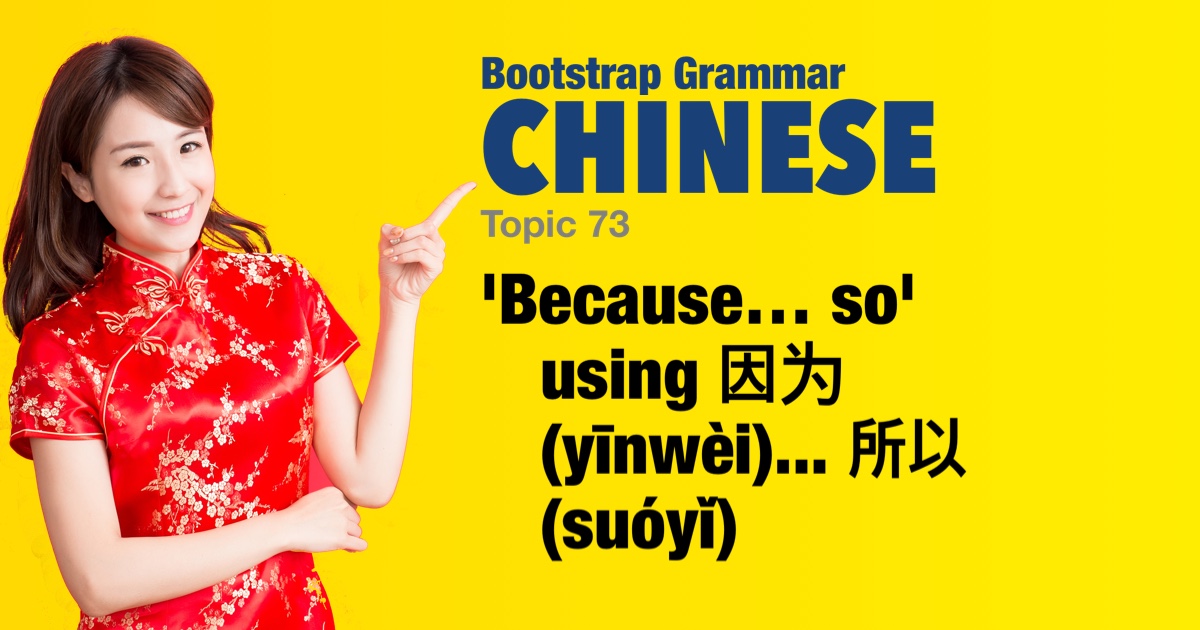Chinese grammar - 'Because… so' using 因为 (yīnwèi)... 所以 (suóyǐ) |
|||
|
|||
Cause and effect can be expressed in Chinese using the pair 因为 (yīnwèi) and 所以 (suóyǐ). • 因为 as we know means 'because' and marks the cause. • And 所以 means 'so' or 'therefore' and marks the effect. So while 因为 alone is often sufficient, coupling it with 所以 more clearly delineates the causal chain, particularly in arguments. Note that when the subject of both clauses is the same, it is omitted. Note the tone change from 'suǒ' (3rd tone) to 'suó' (2nd tone) when 所 is followed by a 3rd tone as in 以 (yǐ). |
| Examples: | |
|
他因为生病所以不去工作。
tā yīnwèi shēngbìng suóyǐ bù qù gōngzuò. He doesn't go to work because he is sick. |
|
|
她因为喜欢阅读所以去图书馆。
tā yīnwèi xǐhuān yuèdú suóyǐ qù túshūguǎn. She goes to the library because she likes to read.
|
|
|
她因为忙所以没接电话。
tā yīnwèi máng suóyǐ méi jiē diànhuà. She doesn't answer the phone because she is busy. |
|
|
我们因为天气好所以出去玩。
wǒmen yīnwèi tiānqì hǎo suóyǐ chūqù wán. We go out because the weather is good. |
|
|
她因为朋友来所以打扫房子。
tā yīnwèi péngyǒu lái suóyǐ dásǎo fángzi. She cleans the house because friends are coming.
|
|
|
孩子因为害怕所以哭。
háizi yīnwèi hàipà suóyǐ kū. The child cries because he is scared.
|
|
|
孩子因为狗叫所以哭。
háizi yīnwèi gǒu jiào suóyǐ kū. The child cries because the dog barks.
|
|
|
我因为没有钱所以不出去吃饭。
wǒ yīnwèi méi yǒu qián suóyǐ bù chūqù chīfàn. I don't go out to eat because I have no money. |
|
|
她因为新工作所以搬家。
tā yīnwèi xīn gōngzuò suóyǐ bānjiā. She moves because of a new job.
|
|
|
你因为迟到所以道歉。
nǐ yīnwèi chídào suóyǐ dàoqiàn. You apologize because you are late.
|
|
 |
|



